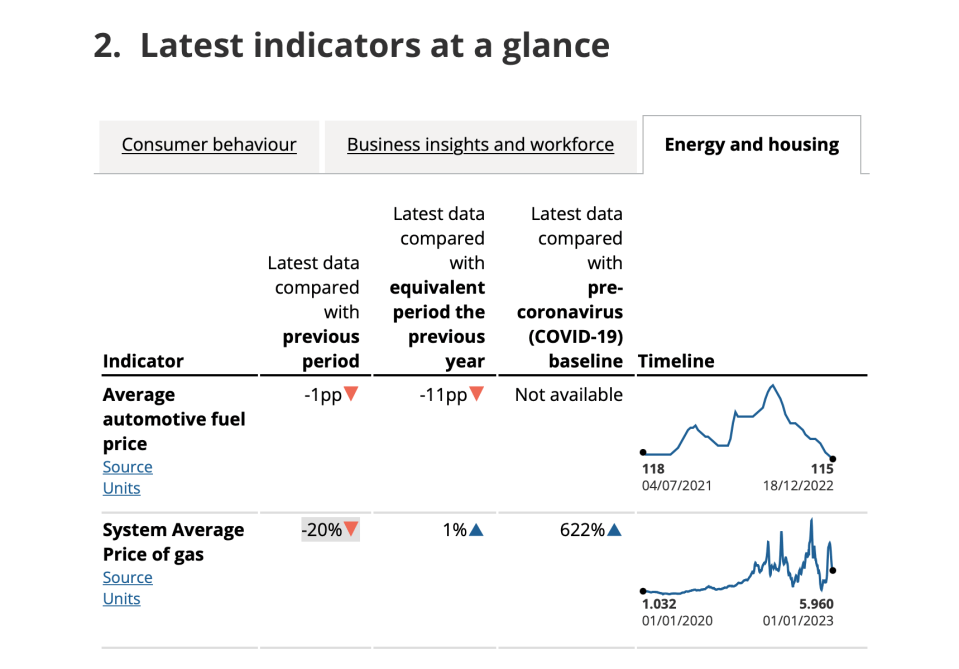Gas prices down 20 per cent in last week but what does it mean for your energy bills?

The average price of gas in the UK has fallen by 20 per cent in the last week, but Ofgem said it would have a “limited” impact on bills.
Despite the drop, which is compared to the average price from February 2020, pre-Covid, the price of gas was still up one per cent on last year, the oil and gas regulator has revealed.
The comes as European gas prices for delivery in February fell by 4.3 per cent to €73.7 (£65.28) a megawatt hour on Tuesday, according to the Guardian.

A major driver of the downward push in gas prices has been warmer-than-usual weather on the continent, forcing demand for energy down.
European countries have also been upping their efforts to wean themselves off Russian oil and gas, meaning they are filling up gas storage facilities, including from LNG (Liquified Natural Gas).
After the figures were released by the Office for National Statistics Ofgem played down its impact on people’s energy bills.
An Ofgem spokesperson said: “Day ahead gas prices, also known as spot prices, have limited direct impact on domestic bills due to how far ahead suppliers buy wholesale energy, but forward prices have also been falling recently.
“When we changed the price cap methodology in August last year, one of the benefits was that if prices fell then they would be reflected in the cap more quickly. The lower forward prices we are seeing at present will be reflected in the cap level from April. We will be publishing the April cap level towards the end of February.”
“The recent exceptionally warm weather across Europe, and lower than expected demand for heating, means that the gas currently in storage will last longer into spring, reducing some of the risk premium in forward prices. Prices remain around four times higher than the levels seen before autumn 2021, but this is a welcome reduction, nonetheless.”
The National Grid has been asked for comment.
